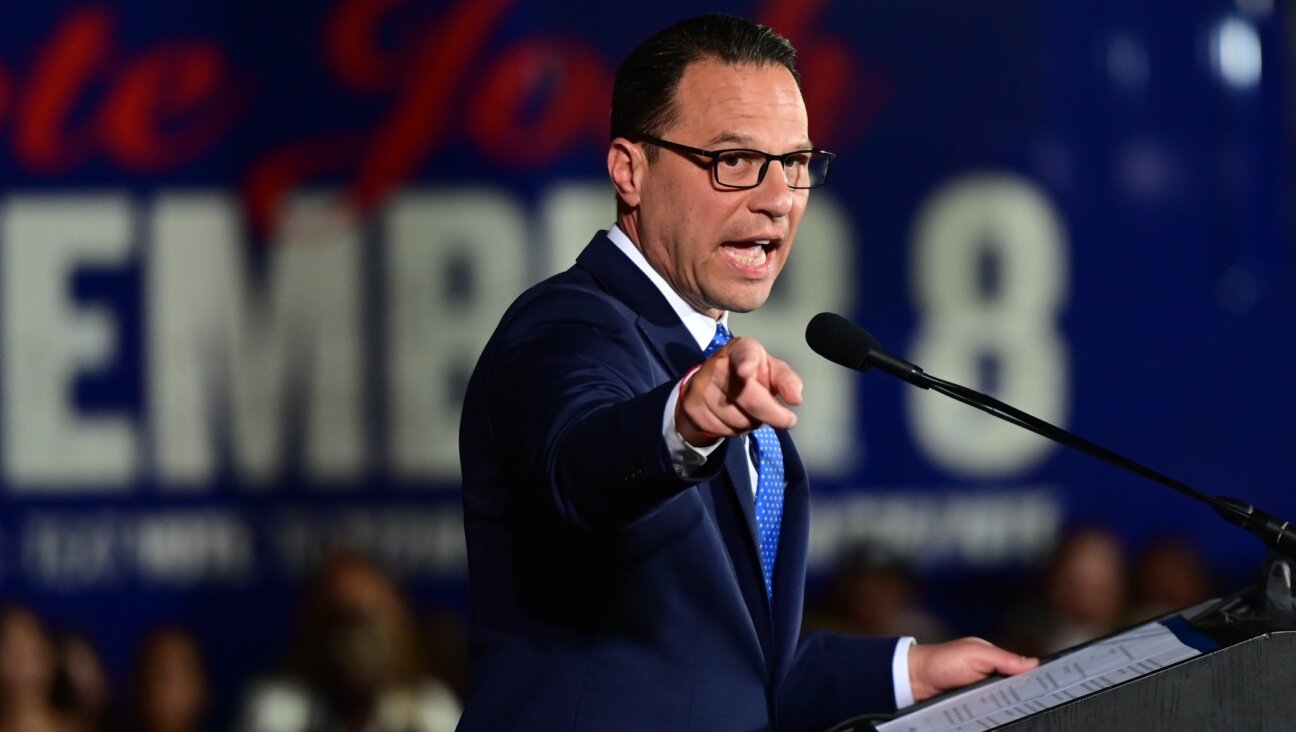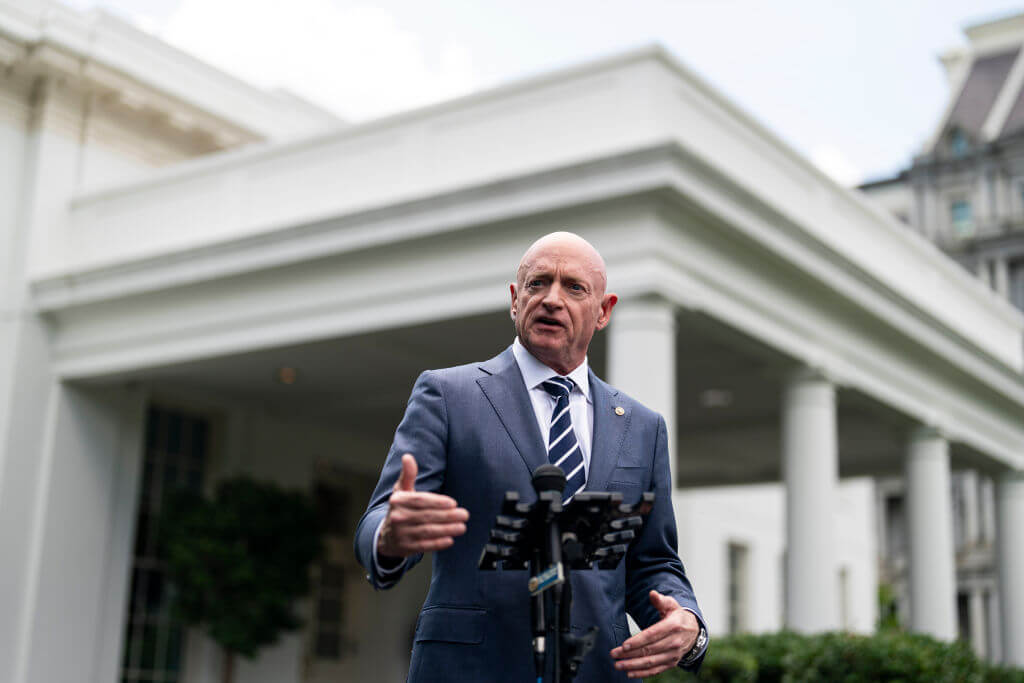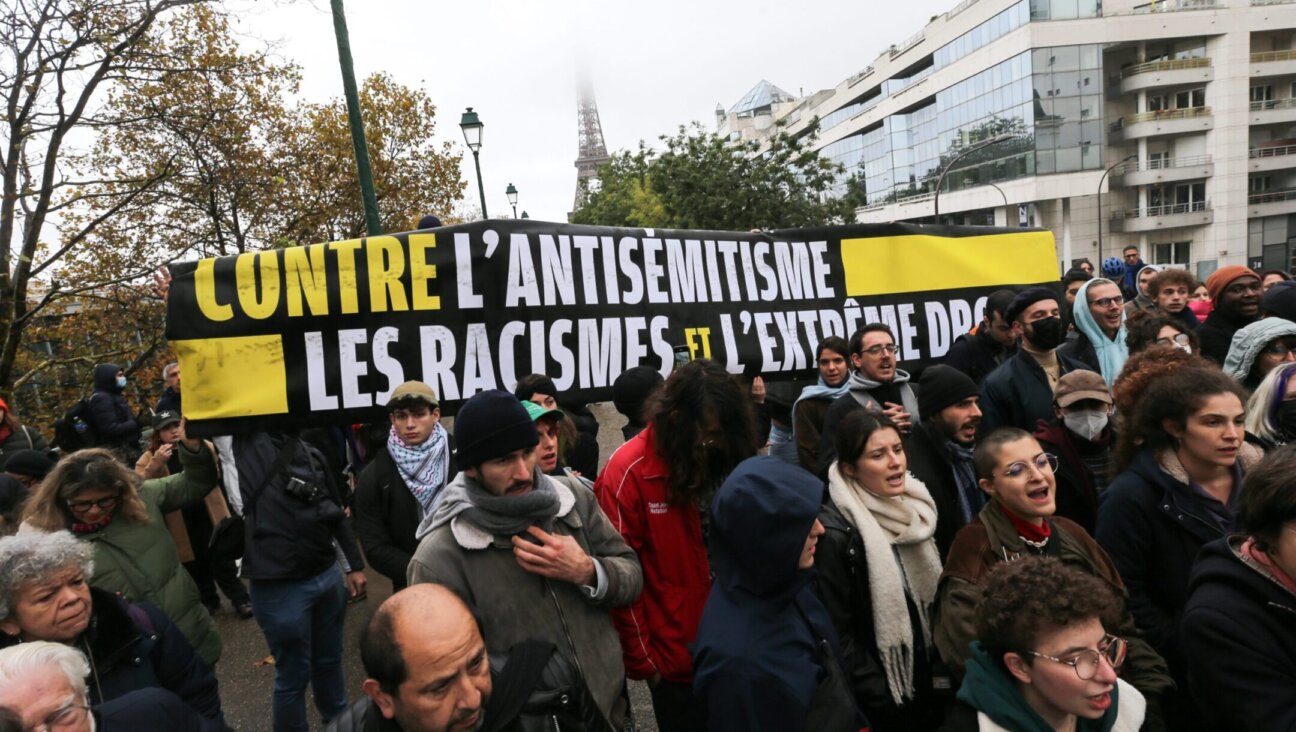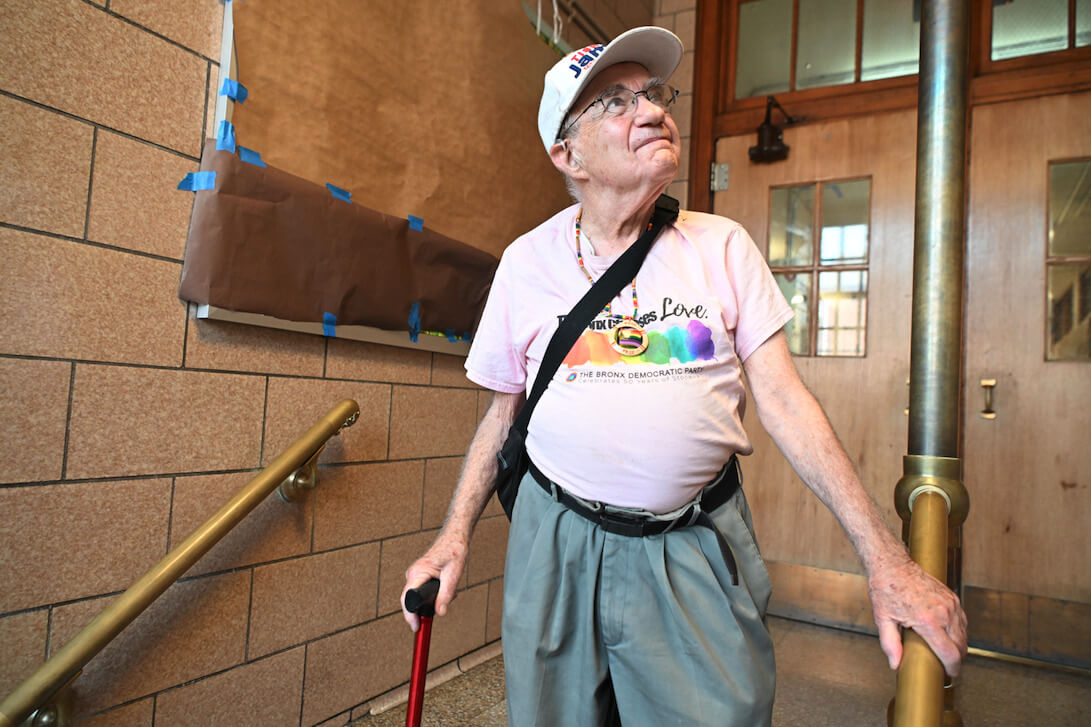Citing Their Close Ties With Local Muslims, Chicago’s Jews Unfazed by Terrorist Threat
If those who sent bomb-laden packages to Chicago from Yemen were trying to terrorize the Second City, they did not succeed.
The weekend after news broke that two parcels addressed to Chicago Jewish institutions had been intercepted en route and found to contain bombs, it was business as usual at the city’s synagogues and kosher restaurants, and at the Bernard Horwich JCC in West Rogers Park, one of several heavily Jewish neighborhoods in Chicagoland.
There was no visible presence of Chicago police at area Jewish institutions, and families came and went casually, Orthodox children darting along the sidewalks between kids in Halloween costumes.
It’s not clear that the bombs were intended for Chicago. The packages from Yemen, filled with a white, powdery industrial explosive called pentaerythritol tetranitrate, were addressed to Chicago Jewish institutions, according to reports from the White House. But an FBI representative said that there was “no identifiable or specific threat” to area institutions, and the one congregation whose name has surfaced in media reports as a potential target was listed with an old address.
American and British security officials are now leaning toward the conclusion that the packages, discovered October 29, were meant to detonate in midair in the cargo planes carrying them,
en route to their Chicago destinations.
For Rabbi Capers Funnye, who heads the Beth Shalom B’nai Zaken Ethiopian Hebrew Congregation in Marquette Park, on the Southwest Side, Chicago Jewry’s seeming lack of concern about an uncertain threat from far away is how it should be. Among their neighbors in Chicago Funnye said, Jews feel comfortable and secure, including with local Muslims who in some neighborhoods live close by.
“These actions are not reflective of the Muslim community in this country,” Funnye said.
Rabbi Asher Lopatin, the spiritual leader of Anshe Sholom B’Nai Israel Congregation, an Orthodox synagogue in the Lakeview neighborhood on the North Side, agreed that the terror threat hasn’t disturbed a feeling of security among Chicago’s Jews. Lopatin said his synagogue had not been notified that it was targeted, and from the news reports, he’s not sure that any Jewish institutions were really the target of the packages.
“It doesn’t really seem [the terrorists] had a grasp of who was targeted,” Lopatin said. “Perhaps they were just using those addresses to get the packages on the planes.”
Lopatin said that Chicago’s Jews generally feel safe, as do most Americans. Part of the reason for this is the “warm” relations with the area’s Muslims, whom Lopatin described as a “partner minority.” He contrasted the situation for Jews in Chicago with that in Paris, where Muslim youths have beaten and murdered Jews on several occasions. In Chicago, Lopatin noted that the Council of Islamic Organizations of Greater Chicago issued a statement condemning the attacks immediately after the first news reports broke stating that area Jewish institutions were targeted.
“We feel comfortable in our neighborhood wearing kippot,” Lopatin said. “We are not going to let the threat of terrorism stop us from being welcoming.”
Funnye, a Conservative rabbi who heads a largely African-American congregation, might have additional reasons to be attentive to reports of terrorists targeting Jewish institutions: He is first lady Michelle Obama’s first cousin and a visible presence in efforts to promote dialogue with area Muslims.
Funnye said Chicago doesn’t need heavily armed guards posted to every major Jewish institution, a site common in European cities.
“I would hate to see that level of security in the U.S.,” Funnye said. He added that Al Qaeda and its affiliates “want us to be afraid of everything.”
Nevertheless, according to a JTA report, agents from the U.S. Department of Homeland Security did arrive in Chicago on October 31 to work with the Chicago Jewish Federation in beefing up security at Jewish institutions.
Chicago has been the home for at least one real terrorist in the recent past. In March, Pakistani-born David Headley pleaded guilty to federal charges of scheming to attack a newspaper in Copenhagen that published cartoons of the Muslim Prophet Muhammad in 2005. He also admitted to planning an attack on a Copenhagen synagogue near the paper. In addition, Headley acknowledged conducting reconnaissance for Lashkar-e-Taiba, the Pakistani terrorist group that sent a team of armed men to attack Mumbai; 168 people were killed — including at least six people in that city’s Lubavitch house, which the killers singled out as a Jewish target. Headley, however, was never charged with plotting any attacks on Chicago.
Historically, Chicago has been a target of anti-Semitic extremists, though not of the violent jihadist variety. On July 2, 1999, right-wing racist Benjamin Smith began a shooting rampage in West Rogers Park, leaving six Orthodox Jews wounded. Smith went on to murder former Northwestern University basketball coach Ricky Byrdsong, an African American, in front of Byrdsong’s suburban Skokie home. He also to shot to death Won-Joon Yoon, a 26-year-old Korean doctoral student in Bloomington, Ind. Smith injured three others before shooting himself to death during a police chase.
In the 1970s, a squad of American Nazis also fought a famous legal battle up the U.S. Supreme Court to march through Skokie, though the group ultimately chose to parade in downtown Chicago and on the Southwest Side neighborhood of Marquette Park.
The Nazis’ actions were met with an outpouring from Chicago’s Jewish community. In 2009, Skokie became the home of the Illinois Holocaust Museum & Education Center.
The museum’s executive director, Richard Hirschhaut, said that, like other institutions, the museum employs a former FBI agent as its chief of security and follows established protocols for screening packages. Museum visitors go through metal detectors and other procedures “similar to what one will encounter coming through O’Hare Airport,” he said.
But Hirschhaut added that he doesn’t think the synagogues necessarily need that level of security, and he trusted the professionalism of area law enforcement to keep the Jewish community safe.
One place where tight security is a fact of life, however, is KAM Isaiah Israel, a Reform congregation located in the Kenwood neighborhood directly across the street from the home of President Barack Obama. The synagogue is within a security perimeter established by the U.S. Secret Service. On regular days, when the presidential family is absent, the road that contains the synagogue and the Obama home is blocked by large concrete barriers and a phalanx of agents. When the President is in town — as he was the weekend news of the printing cartridge bombs emerged — traffic in the whole neighborhood is diverted.
Yuri Lane, a KAM member for five years, said that when the security barriers were imposed, he and other congregants found it exciting.
“I’m a big Obama supporter so I want my president to be safe. I’ve got no problem with showing ID to take my kid to Sunday school.”
By now, he said, the security presence has become routine. Secret Service agents use the washroom in the synagogue and held a Thanksgiving dinner there last year.
Hirschhaut, the Holocaust museum executive director said, “We’re in a very gray zone,” Hirschhaut said. “How do we respond to external threats [without] capitulating to that threat by limiting our sense of freedom? That is the rub.
“We have to go on knowing that there are those out there bent on sowing fear and terror. That they could address and target institutions here means that the world is smaller through the Internet. All it takes is to have a web site to be known to a global community — for good and for bad.”
Contact Ethan Michaeli at [email protected]























